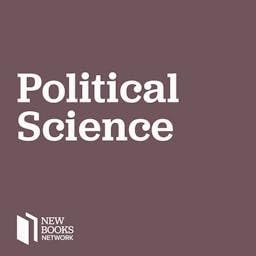The Adaptability Paradox: Political Inclusion and Constitutional Resilience (U Chicago Press, 2025) is a complex and important analysis of the American constitutional system, of the U.S. Constitution itself, and the way that pressures on that system have pushed and pulled on the institutions of government, federalism, and ultimately democracy. Stephen Skowronek, the Pelatiah Perit Professor of Political and Social Science at Yale University, continues his work and exploration of the viability of the constitutional system in the United States in this new book, following on the 2022 book: Phantoms of a Beleaguered Republic (with John Dearborn and Desmond King, Oxford University Press, 2022). Skowronek traces the shifts and adaptations of the constitutional system as it contended with waves of democratization, with the anti-bellum expansion of voting rights for all white men, to the post-Civil War period and the passage of the 13th, 14th, and 15th Amendments, through the advocacy at the turn of the 19th century for labor and gender reforms, and then the advent of the Administrative state in the middle of the 20th century, and finally through the Civil Rights/Women’s Rights/Sexual Revolution/Disability Rights period of the 1960s and 1970s. Part of the argument is that the system itself adapted, becoming more democratic and inclusive with regard to particular groups while at the same time loosening up the constitutional system as a whole. Even with these democratic advances over the course of 250 years, each iterative cycle also tended to exclude other groups of citizens. This tension—with the extension of rights to groups who had been excluded, only to have other groups excluded to keep this ballast of the system—goes to the heart of the promise of democracy within this constitutional system. And we find ourselves with the Constitution under significant stress, with the growth and implementation of substantial presidentialism and an undue dependence on judicial supremacy, leaving the structures of the system potentially unmoored from the very document and ideas that created the system itself. This also gets at the apparent loss of consensus around the idea of the United States, the lack of a common vision of a great commercial republic, which was at the heart of the American Founding. Skowronek also notes that the U.S. Constitution is particularly inept at pursuing social justice, especially within the context of the common vision of a great commercial republic. The Adaptability Paradox is a vitally important book examining the current constitutional dismay in which we find ourselves and provides the historical and political paths that brought us here. We learn a great deal about the tensions between democracy and the American constitutional system—which have been at the heart of the U.S. system since the early days of the republic, but have become much more attenuated of late, with a general lack of consensus around the purpose of constitutional system itself. Find the transcript of our conversation here. Lilly J. Goren is a professor of political science at Carroll University in Waukesha, WI. She is co-host of the New Books in Political Science channel at the New Books Network. She is co-editor of The Politics of the Marvel Cinematic Universe Volume I: The Infinity Saga (University Press of Kansas, 2022), and of The Politics of the Marvel Cinematic Universe Volume II: Into the Multiverse (University Press of Kansas, 2025) as well as co-editor of the award winning book, Women and the White House: Gender, Popular Culture, and Presidential Politics (University Press of Kentucky, 2012). She can be reached @gorenlj.bsky.social Learn more about your ad choices. Visit megaphone.fm/adchoices Support our show by becoming a premium member! https://newbooksnetwork.supportingcast.fm/political-science
Voir plus
Voir moins

 44 min
44 min Dec 12 202542 min
Dec 12 202542 min 54 min
54 min 1 h et 2 min
1 h et 2 min 53 min
53 min 47 min
47 min 34 min
34 min
